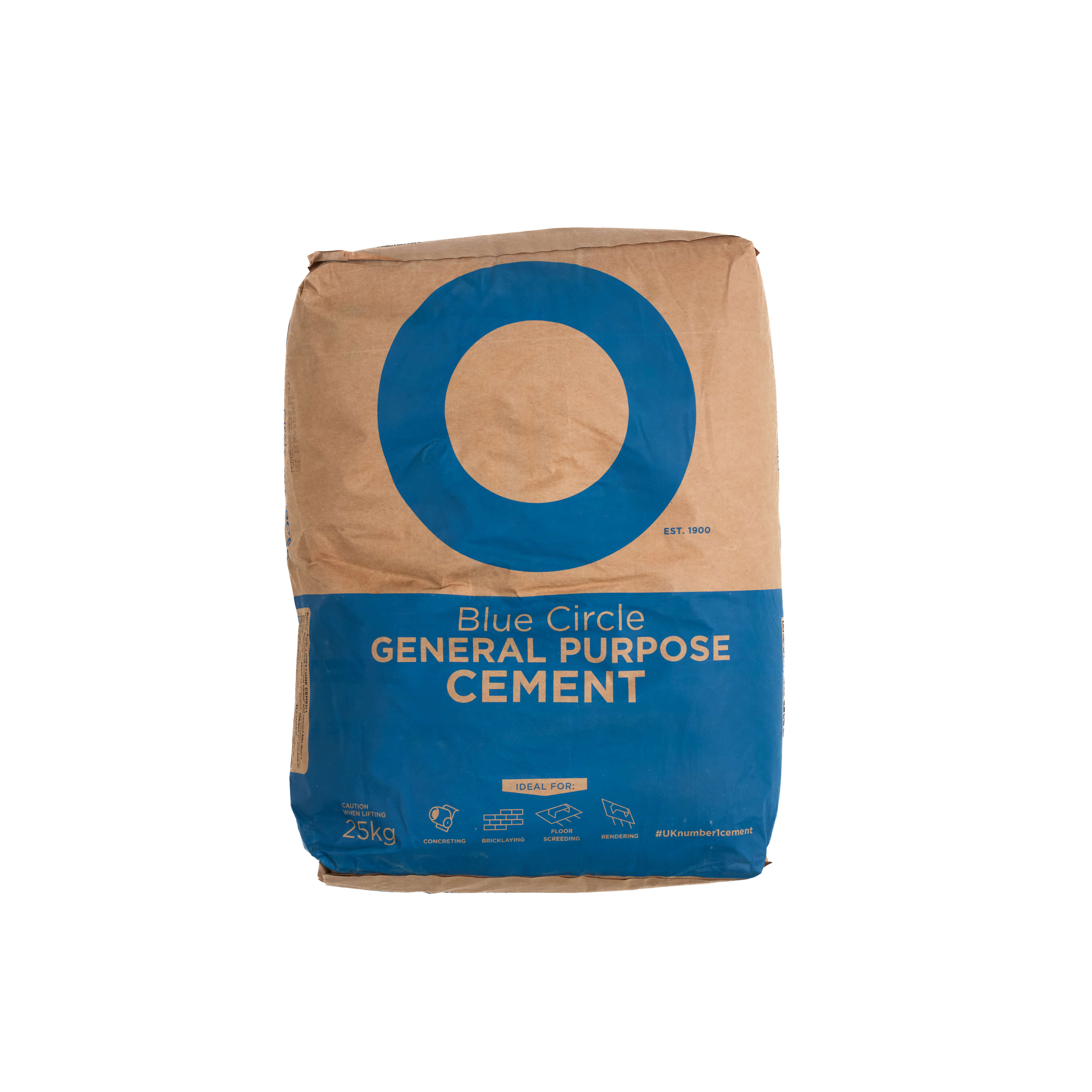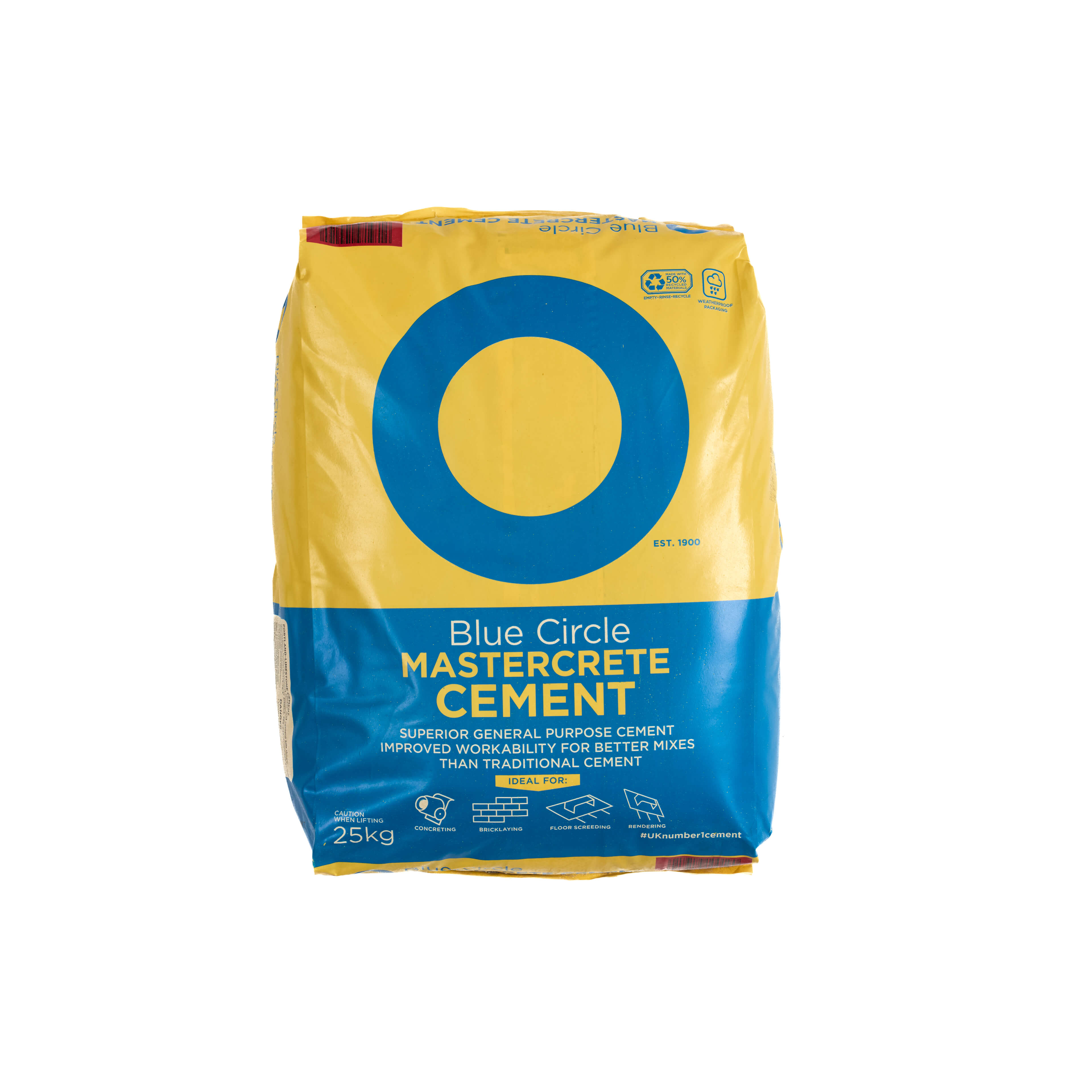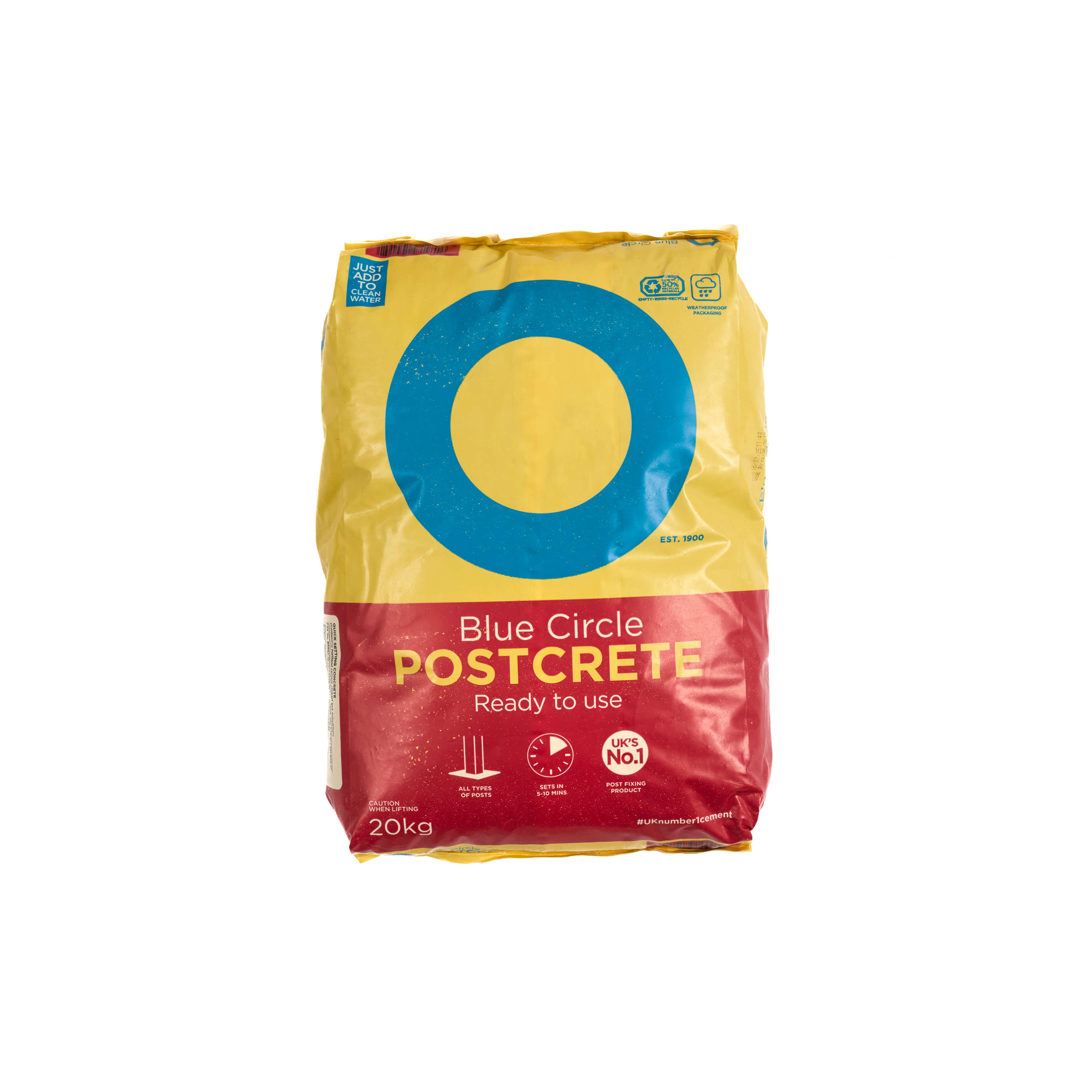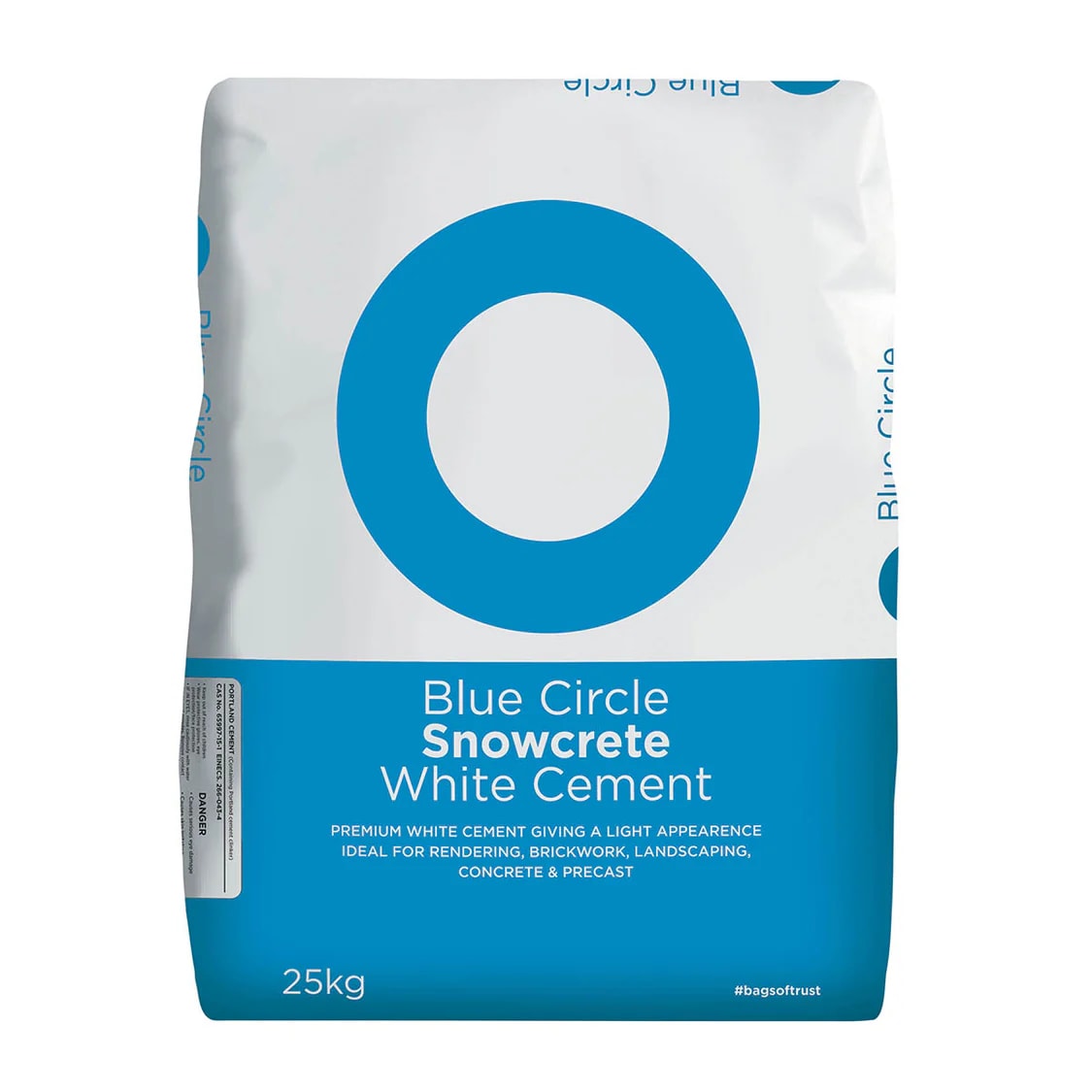Blue Circle Cement
(6 Products)Blue Circle Cement is a trusted name in construction, offering high-performance cement solutions for a wide range of building projects. Whether you're laying bricks, rendering walls, or securing fence posts, Blue Circle has a product designed for the job. With proven durability and consistent quality, their products ensure strong, long-lasting results for both trade professionals and DIYers.
What Is Blue Circle Cement?
Blue Circle Cement is a leading UK brand supplying a wide range of high-quality cement and concrete products for construction, trade, and DIY projects. Known for its reliability, durability, and performance, the brand is trusted by builders, contractors, and homeowners for everything from small repairs to large-scale developments.
We stock a variety of Blue Circle cement products, including Blue Circle Ready To Use Postcrete, a unique, quick-drying formula specifically designed for fixing fence posts; Blue Circle Mastercrete Cement, which offers a more cohesive mix than traditional cement; and Blue Circle High Strength Concrete, which delivers exceptional strength and performance compared to ordinary Portland cement.
Whether you're looking for a rapid setting and hardening cement or reliable ready mixed concrete, find it all on our Cements & Limes page.
Why Choose Blue Circle Cement?
- Established reputation - Over 100 years of cement production expertise.
- Trusted by professionals - Used in construction projects across the UK.
- High-performance products - Cement mixes tailored for different applications.
- Convenient packaging - Available in 25kg bags, bulk bags, and ready-to-use mixes for DIY jobs.
Building Britain: The Blue Circle Cement Story
Blue Circle Cement is a well-established cement brand in the UK, originally part of Blue Circle Industries, which was founded as the Associated Portland Cement Manufacturers Ltd (APCM) in 1900 through the merger of 24 cement companies. The company adopted the Blue Circle brand name in 1928 and officially rebranded as Blue Circle Industries PLC in the late 1970s.
In 2001, Blue Circle Industries was acquired by Lafarge, a French construction materials company. Lafarge later merged with Holcim in 2015, forming one of the world’s largest cement producers.
Today, the Blue Circle brand is owned by Tarmac, a CRH company, and remains a leading name in the UK cement market. The brand offers a wide range of cement products, including general-purpose cement, rapid-setting cement, and sulfate-resistant cement, widely used in construction, masonry, and DIY projects.
Blue Circle General Purpose Cement
Blue Circle General Purpose Cement is a trusted choice for bricklaying, rendering, and general construction.
Made using sustainable cement technology, it provides excellent binding properties and a smooth, workable mix. It’s also compatible with admixtures like air-entraining agents and workability aids, making it easier to use across different applications.
For added confidence, it meets BS EN 197-1 standards. With a three-month shelf life, it’s a practical option for multiple projects.
Mastercrete Cement
Blue Circle Mastercrete offers enhanced resistance to freeze/thaw cycles, lower water demand, and reduced risk of segregation and bleeding, making it ideal for concrete, mortar, render, and screed applications.
This cement carries independent third-party certification and the CE Mark, assuring its compliance with rigorous quality standards.
Postcrete Cement
Blue Circle Postcrete is a quick and easy solution for securing wooden, concrete, and metal fence posts with minimal effort. No mixing is required - simply add water to the post hole and pour in the Postcrete.
Its fast-setting formula combines sand, cement, and specialist additives, setting in just 5-10 minutes and allowing fence panels to be secured in around 30 minutes, making installation efficient and hassle-free.
Frequently Asked Blue Circle Cement Questions
How Can I Ensure The Best Results When Using Blue Circle Cement?
To achieve optimal results, always follow the manufacturer's instructions and guidelines provided with the product.
Proper mixing, curing, and application techniques are essential for maximising the benefits of Blue Circle Cement and ensuring a successful project.
What Is The Shelf Life of Blue Circle Cement?
Each Blue Circle cement product features a clearly marked use-by date on its packaging, which should be strictly followed. Generally, this date will be approximately three months. It's important to note that expired cement may experience a decline in strength and could develop lumpy textures.
To ensure optimal performance and avoid any potential issues, it is recommended to use Blue Circle cement within its designated shelf life.
Does Blue Circle General Purpose Cement Require Any Additional Additives?
Blue Circle General Purpose Cement can be used with additives such as air-entraining agents or plasticisers to enhance its workability and performance.
However, it can also be used without any additional additives, depending on the specific requirements of your project.
How Should Blue Circle General Purpose Cement Be Stored?
Blue Circle General Purpose Cement should be stored in a cool, dry place, preferably on pallets or raised platforms to prevent moisture absorption. It's essential to keep the packaging tightly sealed to maintain its quality and prevent any moisture-related issues.









